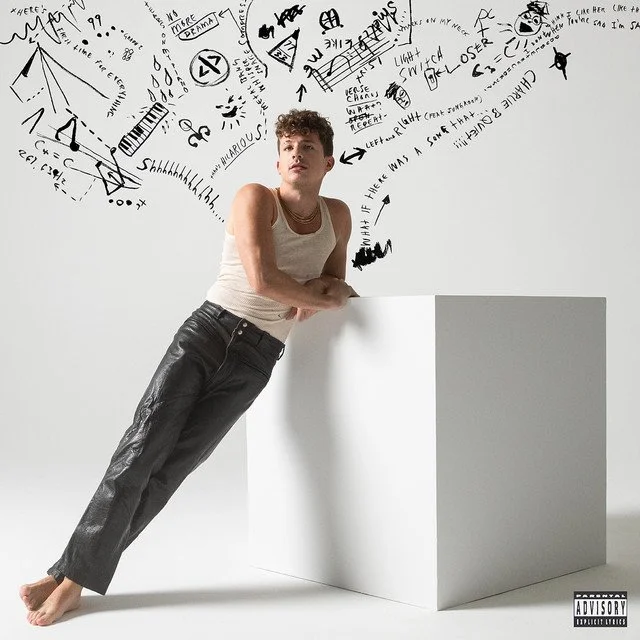Album Review: Charlie Puth, ‘CHARLIE’
Charlie Puth’s evolution has been one of the more curious pop music phenomena over the past couple of years. “See You Again” transcended its movie soundtrack roots and became a new age graduation anthem, thus setting the scene for a dull debut album that yielded a few hits of its own in “Marvin Gaye” (with Meghan Trainor) and the Selena Gomez-assisted “We Don’t Talk Anymore.” Voicenotes, the Grammy-nominated follow-up to Charlie’s debut, found the singer honing in on an R&B-indebted sound that added depth to his pop sensibilities while securing hits with a more expansive repertoire of collaborators such as Kehlani and Boyz II Men. Charlie, the pop star’s third studio effort, arrives in the midst of a TikTok and thirst trap-fueled Charlie Puth Renaissance. The new record forgoes much of the charisma that grounded Voicenotes, but polishes the adult contemporary-leaning pop that informed his debut. While Charlie doesn't have anything that even remotely warrants the borderline desperate thirst traps that have bookmarked the record’s promotional campaign, it is still a perfectly fine pop album from an artist that is capable of so much more.
“That’s Hilarious” opens the album with a poppier take on a melody that recalls Juice WRLD’s subtle melancholy. In typical Charlie fashion, he transforms literal laughter into one of the song’s many hooks. It’s the kind of just-short-of-corny idiosyncrasy that makes Charlie’s music unique. These moments — like the flick of a light switch in “Light Switch” or the mono engineering in “Left and Right” — help offset how bland Charlie’s tone is. Whether he’s floating up to the top of his falsetto or gearing up for a belt, Charlie’s tone is a blank slate on which nothing is ever drawn. He’s a fine and technically sound singer, but there’s no color to his tone to add gravity to these songs. His lightweight tone is the reason why a pop-rock offering like “Charlie Be Quiet” can never quite soar to anthem status despite how carefully Charlie curates the volume dynamics throughout the song.
Atlantic
“Light Switch,” the song that sparked the Charlie Puth renaissance, joins the Jungkook-assisted “Left and Right” as the primary singles from Charlie. Both songs fit nicely in the context of the full album, but neither truly reaches the transcendent place that quintessential Charlie Puth singles like “Attention” or “Done For Me” reside in. “Light Switch,” in particular, relies on the novelty of the light switch click to cover up what’s an otherwise plain song. The Police-esque bass line of “Smells Like Me” is a welcome treat, and the string arrangement during the bridge of “When You’re Sad I’m Sad” as well as the key change in “I Don’t Think That I Like Her” show off Charlie’s penchant for melodrama. With the kind of saccharine, inoffensive pop music that Charlie makes, it’s very easy for the songs to fall into the territory of department store playlists and Top 40 radio fodder. There are normally one or two elements per song that help them from completely falling into those abysses, but the album mostly feels faceless despite this being Charlie’s peak as a celebrity and social media persona.
Charlie is just fine. It’s a well-engineered album that corrects the shoddy attempts at pop purism that were littered across his debut album. Nonetheless, Charlie flattens the edge and evolution displayed on Voicenotes. It’s an album that feels oddly safe and bland for a star who has become one of the most discussed pop singers on the Internet after years of flying under the radar in that regard. Charlie is neither a blemish on Charlie Puth’s discography, nor is it a crown jewel. It’s just there.
Score: 60
Key Tracks: “That’s Hilarious” | “There’s A First Time For Everything” | “I Don’t Think That I Like Her”






Jung Kook follows up “Seven” with a sexy new Jack Harlow collab.